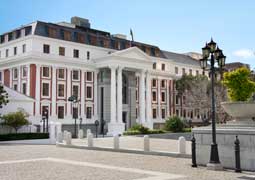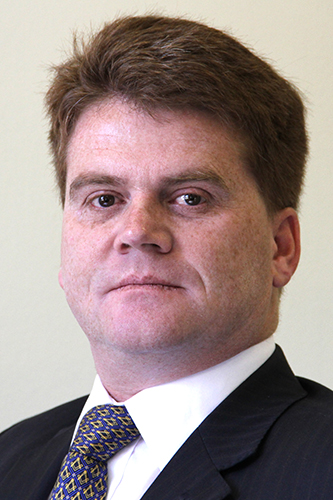
The Ministers of the government departments that fall within the economic cluster appeared before the National Assembly (NA) last week to reply to questions concerning the performance of their respective portfolios.
Public Enterprises: Minister Pravin Gordhan
Eskom inefficiencies related to unreliable electricity supply came under severe criticism. Member of Parliament Mr Steven Swart asked why, if Mr Gordhan’s department is serious in its attempts to end the sabotage allegedly taking place at some power stations, does Eskom not install surveillance cameras to detect those involved in this criminality.
Mr Gordhan replied there is room for improvement in this regard, but Eskom has enormous power utilities and it is difficult to monitor every corner of them. He further urged the National Prosecuting Authority to work harder to ensure that those Eskom employees who are already implicated in wrong doing are prosecuted.
Referring to a statement from Eskom’s CEO Mr Andre de Ruyter, in which he referred to Eskom as a dead horse, MP Ms Omphile Maotwe asked why the Minister allows someone to run a state-owned entity that he does not believe in. Mr Gordhan replied that the CEO has apologised for his remarks.
Ms Maotwe also asked for clarity on the government’s position on clean energy, given the government’s announcement of its intent to abandon coal and transition to clean energy, in light of the Minister of Energy’s statements, which seem to contradict this stance.
Mr Gordhan replied that South Africa has vast coal reserves and our transition to clean energy will not occur abruptly. The government will also conduct due diligence to ensure that it does not have adverse effects on the job market. He further added that the reality is that we need to decarbonise and be part of the climate change accords to protect not only our country, but humanity. This means Eskom has to find other means of producing energy in future.
Tourism: Ms Lindiwe Sisulu
MP Ms Phumeza Mpushe asked the Minister of Tourism, Ms Lindiwe Sisulu, about the tourism department’s recovery plan after the devastation wrought on the tourism industry by Covid-19.
Ms Sisulu replied: “To date, we have allocated well over R200 million to rejuvenate the sector, which has been hard hit by the advent of Covid-19. As a result, trade and consumer indexes are now higher and the norms and standards of safe operation have been introduced.”
She added: “These interventions have helped in reigniting tourism demand domestically, which have been further boosted, largely by the removal of South Africa by the British government from its travel destinations red list. We hope other Europeans countries will follow suit.”
MP Mr Ahmed Shaik Emam asked: What will be the effect of an impending infection wave, predicted for December, on the department’s achievements thus far, given that December is a huge tourism month?
Ms Sisulu replied: “We have learnt a lot from the disadvantages that nearly put the sector on its knees. As such, our recovery plan is meant to deal with any emergency or disaster that the sector could possibly be exposed to in future.”
Public Works and Infrastructure: Minister Patricia de Lille
Members of the NA wanted the Minister of Public Works, Ms Patricia de Lille, to account on the progress of the Infrastructure South Africa (ISA) policy, which aims to put infrastructure development at the heart of economic growth and job creation in the medium term.
Her response was: “Our Infrastructure Development Plan is aligned to our country’s economic recovery. We view infrastructure as a catalyst that can stimulate investment. This growth will be leveraged mainly through the Infrastructure Fund that will be invested in bankable projects, while removing red tape and bottle necks whenever they arise. This will be coupled by efficient projects designs and implementation and hope this will lead to job creation.”
Trade and Industry: Minister Ebrahim Patel
During the previous State of the Nation Address, President Cyril Ramaphosa announced the inception of the Economic Reconstruction and Recovery Plan (ERRP), as a blueprint for South Africa’s economic growth and job creation. Mr Simanga Mbuyane wanted the Minister of Trade, Industry and Competition, Mr Ebrahim Patel, to update Members of the NA on its progress.
Mr Patel said one of the ERRP’s primary achievements in the short-term is industry’s growing embrace of the call to buy local products. “Our injection of funds in this regard has led to the creation of 700 000 jobs and an uptake of localised goods. The investment of Coca Cola in localisation of its production chain augurs well for this campaign.”
Furthermore, the programme goes beyond our borders and seeks to exploit the African Union free trade agreement, which will give South African businesses access to untapped pools of consumers for their products across Africa.
“We call for the localisation of production and buying of local goods, because we consume products that we don’t produce and produce products that we don’t consume. This policy seeks to change that to the benefit of our economy.”
Industrialisation remains the longitudinal blueprint of the ERRP. The continued undertaking in this regard has resulted to Johnson and Johnson committing to manufacturing vaccines locally. This is coupled with Toyota’s undertaking to locally manufacture and produce some of its vehicles for internal markets.
Abel Mputing
22 November 2021

